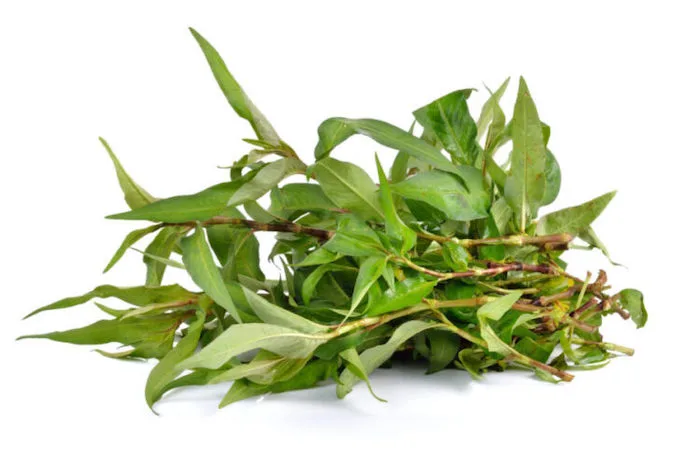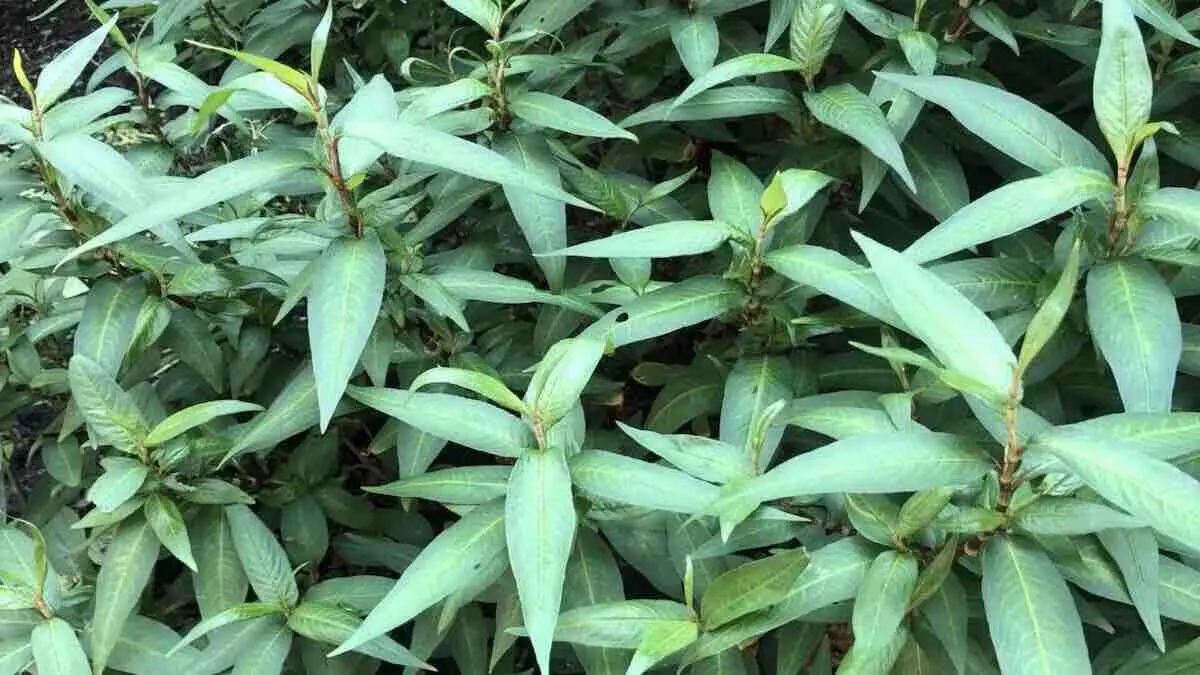Table of contents
- How to grow vietnamese mint
- Growing Vietnamese Mint in Australia
- Vietnamese Mint Growing from Seed
- Growing Vietnamese Mint in Water
- Vietnamese Mint Growing Season
- Vietnamese Mint Companion Planting
- Vietnamese Mint Growing Temperature
- Vietnamese Mint Growing in Pots
- Vietnamese Mint Growing Problems
- Vietnamese Mint Uses
How to grow vietnamese mint
Vietnamese Mint growing provides a flavourful herb that can be easily grown in your yard. Check out these tips to grow this herb with ease.
The plant produces highly aromatic leaf. Indeed Vietnamese Mint (Persicaria odorata), also known as Vietnamese coriander or laksa leaf, is not a mint but a herb enjoyed for its hot peppery taste.
Growing Vietnamese Mint in Australia
You can propagate Vietnamese mint from cuttings (by burying part of the stem under the soil). It can also be easily grown by division.
Time needed: 3 minutes
How to grow Vietnamese mint from a cutting or by division.
- Prepare Soil
Improve your soil with well matured manure or compost.
- Obtain cutting
Cut a stem off and remove the lower leaves. Then put the cut end in a jar full of water. Small white roots will soon appear from the underwater end of the cutting .
- Plant
When there are numerous white roots, you can take out the cutting and plant it in moist rich soil. If growing by division, plant the division you have separated off and plant it at the same level it was when you dug it up, or the same level it was in the pot you purchased.
- Sun and Water
Plant in full sun. In addition, water in your seeds or seedlings and thereafter water regularly.
- Mulch
Mulch around the base of the leaves to keep roots moist and suppress weeds.
- Harvest
Harvest with scissors. Cut back to the woody stems as this will also encourage leafier growth.
Vietnamese Mint Growing from Seed

Growing Vietnamese Mint in Water
Vietnamese mint is a versatile herb often used in Southeast Asian cuisine. Growing Vietnamese mint in water is a simple and effective method, particularly for those with limited garden space. Steps to Grow Vietnamese Mint in Water:
- Select Healthy Cuttings that are at least 4-6 inches long with several sets of leaves.
- Prepare the Cuttings by removing the lower leaves from the bottom 2 inches of the stem, leaving a few sets of leaves at the top.
- Place the Cuttings in Water and position the container in a bright location with indirect sunlight.
- Change the Water Regularly.
- Once the roots are well-established, you can continue to grow the Vietnamese mint in water. Ensure the water level is consistently high enough to cover the roots.
By following these steps and maintaining proper care, you can successfully grow Vietnamese mint in water and enjoy a continuous supply of fresh, flavorful leaves for your culinary needs.
Vietnamese Mint Growing Season
Garlic chives loves humid tropical and sub-tropical growing conditions. They can gow all year around in these locations.
Vietnamese Mint Companion Planting
Vietnamese mint grows well with other Asian herb that also thrive in moist soils, including ginger, lemongrass and coriander.
Vietnamese Mint Growing Temperature
Vietnamese Mint is resilient and can tolerate a range of temperatures. It flourishes in warm conditions but can endure cooler climates, making it adaptable to various environments.
Vietnamese Mint Growing Conditions
Most herbs do not tolerate constant soggy soil. They need to have the chance to drain between waterings.
Vietnamese Mint Growing in Pots
Consequently, we suggest well draining soil and growing your herbs in containers or pots. This is particularly helpful in tropical regions, especially during the torrential downpours that occur in the wet season.
Fertilising
When growing Vietnamese mint you can apply a slow release fertiliser at the time of planting. During the wet season we also apply a liquid seaweed fertiliser every month, to achieve best results.
Watering
During the tropical dry season in particular this plant needs to be watered regularly.
Vietnamese Mint Growing Problems
This herb is fairly pest resistant. However, it can suffer from aphids or spider mites. Regular application of white oil can help address these pests. Indeed white oil is an effective organic pesticide that you can make at home.
Vietnamese Mint Uses
This plant is also known as laksa leaf. Indeed, laksa leaf is used often in cooking, most notably in laksa soup.
Hence, this herb has a unique ‘peppery’ flavour. It is also has hints of coriander flavour and can be used in a similar way. Thus it is very popular in South East Asian cooking. Indeed it is useful to spice up a salad and it is found in dishes with seafood, rice, meat, chicken, coconut milk and curry.
Vietnamese Mint Benefits
This herb is quite good for you. Indeed, packed with vitamins A, C, B1, B2, B3, B6, B9, as well as calcium, iodine, iron, magnesium, and potassium, Vietnamese Mint has a number of health benefits.
This herb has anti-inflammatory properties and is said to help with swelling joints and skin issues. There is also evidence it is useful for people suffering from diarrhoea.
This plant also works for fungus between your toes (also known as athlete’s foot). Wash the leaves; crush it into a liquid to apply on the wounded area. In addition, you can use the residue to cover it. Then keep water away from the area.
Extracts of this plant can also be applied to address dandruff.
Other Tropical Herbs
- Dill
- Ginger Growing
- Grow Basil at Home
- Cilantro
- Garlic Chives
- Lemongrass
- Mint
- Stevia
- Thai Chili
- Vietnamese Mint


Comments
3 responses to “Vietnamese Mint Growing Guide”
[…] Vietnamese Mint Growing (laksa leaf) […]
[…] Vietnamese Mint Growing (laksa leaf) […]
[…] Vietnamese Mint (laksa leaf) […]